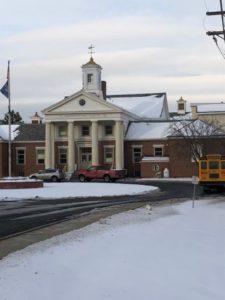“COVID melt” and The Value of Out of School Learning Experiences
by Kristen C. Wilcox
As schools begin to reopen and after almost six months of varying degrees of closures in practically every segment of society across the United States, COVID melt has been a concern. While “COVID melt” (i.e. losses in academic learning opportunities from the abrupt shift to remote learning) is a reality that new research will document in the coming months and years, out of school learning (OSL) experiences are not without value. This blog shares relevant research on OSL and previews findings from NYKids’ most recent study about what value students place on OSL and how their school leaders and staff leverage OSL to engage them in preparing for college, career, and civic life.
The Value of Out of School Learning
Scholars have for decades noted the role out of school learning (OSL) experiences play in children’s and adolescents’ healthy development and how families and communities’ contributions to OSL are unevenly recognized in schools based on class, race, and family configurations.
 Other researchers have documented educators’ efforts to connect classroom learning to students’ experiences outside of school in attempts to draw on their and their families’ knowledge and sustain their cultures.
Other researchers have documented educators’ efforts to connect classroom learning to students’ experiences outside of school in attempts to draw on their and their families’ knowledge and sustain their cultures.
In response to the paucity of scholarship on how educators approach OSL and what value students attribute to OSL in preparing for life in and beyond high school, our most recent NYKids study investigated OSL in “positive outlier” schools’.
Crown Point, hosted the NYKids research team in the 2019-2020 school year and was identified as a positive outlier because its graduation rates exceeded predictions taking into account important demographic variables correlated with student outcomes.
The Study Findings on Out of School Learning
The first phase of NYKids college and career readiness study focused on gathering interview and focus group data from district and school leaders and educators regarding what policies, processes, and practices they attributed to their above-predicted graduation outcomes. This first phase of the study revealed that leaders and educators mitigated the potentially narrowing effects of a singular focus on academic achievement by
- cultivating family and community connections
- setting high expectations for adult and youth collaboration and leadership, and
- customizing their programs and practices to student, family, and community needs and values.
The second phase of the study probed, through student interview, focus group, life timeline and ecological map data, how students perceive the value of their high school experiences in preparing them for college, career, and civic life.
One highlight from this study we preview here is how students see the value of OSL to their success in and beyond high school and how Crown Point school leaders and staff leverage OSL to engage them.
Making Connections between Out of School (OSL) and In School (IS) Learning: Lessons from Crown Point
All Crow n Point students who participated in NYKids’ study described some connections between out of school and school learning and could provide examples of ways teachers tapped into their OSL experiences.
n Point students who participated in NYKids’ study described some connections between out of school and school learning and could provide examples of ways teachers tapped into their OSL experiences.
- One student was invited to bring his knowledge of mechanics to bear in his Technology class
- Another was tapped as a math peer tutor because of his abilities for teaching developed during summer camp, and
- Still another, whose family member was a veteran, was galvanized to help lead an effort to bring a veteran’s event to the school.
Crown Point students also spoke to the importance of opportunities school leaders and staff provided for them to connect to other young people outside of their school. The Future Community and Career Leaders of America Club (FCCLA) activities were top on the list of things they pointed to opening up their views of the world outside of Crown Point. Other programs like Reconnecting Youth that bring young people from different schools together to tackle problems challenging their peers like depression were also important.
Leveraging OSL During Reopening
These findings point to some key questions for district and school leaders and teachers as they prepare for reopening:
- What do we know about what each student has learned out of school?
- What ways do we recognize and show the value of what each student knows and can do?
- How are we drawing on family and community members’ knowledge and expertise to connect in and out of school learning?
- How are we integrating each students’ knowledge and skill to benefit others in our community and in society more broadly?
- What programs do we have in place (or can we put in place) to help connect our students to others at this time of distancing?
Stay tuned for new research results in our NYKids’ News and Resources pages and please like us on Facebook and Twitter.
